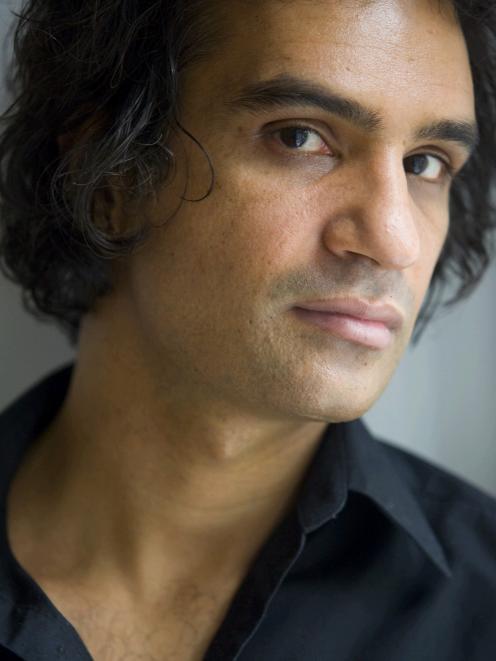Nadeem Aslam turned 50 last year, and in 25 years of fiction writing the Pakistan-born author, who lives in Yorkshire, has taken on subjects such as the war on terror and migrant communities in the United Kingdom.

Where did the idea for The Golden Legend come from?
Simmering away in the background for the past five years has been this constant conversation about refugees and the hatred of strangers. It's now become part of public life. I kept hearing:"Why are these people coming? What are they fearing?'' And I wanted to say: "This is why.'' Nobody leaves their house, their country lightly. You don't wake up one day and think: "I'll just get on this boat and make a crossing.''
You're wryly scathing about religious intolerance in Pakistan . . .
That was the starting point. Pakistan's draconian blasphemy laws aren't concerned with blasphemy at all, but based on earthly greed. Then it became a book about the powerful and powerless. I was in Pakistan and I met this young man who had come from Kashmir to train as a guerrilla fighter, because his sister was beaten so severely by an Indian soldier that her baby was born with a broken arm. But he was shocked at how callous his fellow fighters were. So he walked away . . . but he was drifting in Pakistan. He was the seed for Imran in the novel.
With all these subtexts, how hard do you have to work on narrative?
First and foremost I am a novelist, and I wake up every day approaching life's problems through fiction. The novel isn't a political puzzle to be worked out; the main thing is:"Is this a gripping story? Are you involved with the lives of these people?'' Yes, there's a little boy maimed by a drone strike, but he isn't simply my attempt to draw attention to how bad drones are, he's also delightful, irrepressible even.
Which book changed your life?
A biology textbook. In Pakistan, they didn't get introduced until I was in junior school and the religious teacher at my school resigned, outraged at the idea that something other than his version of how the human race came into being was presented. In that moment I saw the idea of evolution that was more akin to my sensibilities.

Does Yorkshire feel a long way from the events in your book?
I'm surrounded by farmland and orchards, which I work in. And these are the same fields my father walked around in the 1950s, when he fled the dictatorship in Pakistan. Actually, going for a walk in Yorkshire, for me, is like walking in Pakistan, it feels far away from the centre and makes me very aware of what passes for beauty in the margins.
Your writing has always had that keen sense of beauty amid fear and intolerance.
I do hope my delight in the world comes across in my novels. Being alive is such a beautiful phenomenon, and I want to observe intensely everything that is around me with what the poet Wallace Stevens called the "hottest fire of sight''.
How do you feel about Pakistan in 2017?
I would like to think I have a very strong emotional relationship with Pakistan. But any moral dilemma you're faced with is so huge there. Discrimination is so blatant: a teacher can ask a Christian student to stand up and justify taking the place of a Muslim in a class. Bishop John Joseph killed himself in Faisalabad in 1998 in a protest over blasphemy laws. I don't need to make these things up. Yet there is so much in Pakistan that is beautiful and extraordinary.
There's a line where one of your characters muses on the survival of the human race . . .
That's what the book is about. Earlier this year I saw a man wearing a T-shirt that said: "Welcome to Britain, now fit in or f--- off''. That awful idea of only one God, one religion, one nation, one language that I explore in this book . . . well, it goes against everything I hold dear.
QWhat do you hold dearest as a novelist?
In a way, this book is an attempt to understand Brexit and Trump before they happened. Our principles are being tested. I feel like I have to keep an eye on all of this through my writing. But in the end, my main theme is love. It's certainly the most interesting thing that happens to us.
- Guardian News and Media
Read it
The Golden Legend, by Nadeem Aslam, is published by Faber and Faber and distributed in New Zealand by Allen & Unwin.
Win a copy
The ODT has three copies of The Golden Legend, by Nadeem Aslam, to give away courtesy of Faber and Allen & Unwin. For your chance to win a copy, email helen.speirs@odt.co.nz with your name and postal address in the body of the email, and ‘‘Golden Legend Book Competition’’ in the subject line, by 5pm Tuesday, January 24.
Last week’s winners
Winners of last week’s giveaway, Moonglow, by Michael Chabon, courtesy of HarperCollins, were: Noelene Johnstone, Madeleine Child, Florence Stone and Wendy Chik, all of Dunedin, and Edna Weedon, of Invercargill.











